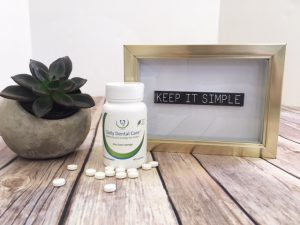
The general public has long been familiar with probiotics and their many health benefits for gut health, but a newer and lesser-understood nutritional supplement is prebiotics. Although they are very different in function, they are equally beneficial to human health. Recently, researchers have discovered that these two supplements, probiotics and prebiotics are also showing substantial health benefits when administered as a dental care solution in the oral cavity.
What is the difference between Probiotics and Prebiotics? This is very simple; one is alive and one is not. Probiotics are live microorganisms that are introduced to the human body and are intended to have health benefits. They are often the same or similar to the microorganisms that live naturally within humans. Prebiotics are not alive, but they are dietary substances that favor the growth of beneficial bacteria over harmful ones. They empower your existing good bacteria (or good bacteria introduced through probiotics) to survive and establish a balanced ration of good-to-bad bacteria using nutrients to influence the oral environment.
Picture the relationship like this: a probiotic (or bacteria) is the seed and the prebiotic is the fertilizer. The two supplements have proven health benefits exclusively and don’t need to be taken together, but it is believed that the two can be even more effective when working synergistically. Both have shown the capability of neutralizing pH (cavity prevention), decreasing inflammation, disrupting biofilm (dental plaque), and balancing the microbiota when consumed.
There are essentially three dental prebiotics available in the market, xylitol-based products, Revitin® toothpaste, and Daily Dental Care™ oral care lozenges. Xylitol has shown the ability to neutralize Streptococcus mutans when consumed in large amounts. Revitin® is an all-natural prebiotic toothpaste that supports enamel strength, fresh breath, and supports your beneficial bacteria. Daily Dental Care™ lozenges, through internal research, have shown the ability to neutralize S. mutans, T. denticola, P. gingivalis, and T. forsythia. The lozenges also contain a second bioactive molecule that enhances metabolic capabilities of oral health-promoting bacteria to help establish a balanced oral microbiome.
These relatively new oral care supplements are quickly gaining traction with consumers looking for alternative, preventative-focused options to address dental health and hygiene issues.
For more information on how to become an OralDNA Provider – scan HERE: 
- Probiotics and Prebiotics are necessary for Dental Health - March 2, 2018
- Daily Dental Care™: Interview with Dr. Emily Stein - February 9, 2018
